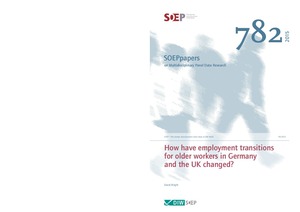Getting poor to work: three welfare increasing reforms for a busy Germany

Deutsches Institut für Wirtschaftsforschung, Berlin
DIW - Berlin
2015
29 p.
low wages ; taxation ; work incentive ; working poor
SOEPpapers on Multidisciplinary Panel Data Research
781
Wages and wage payment systems
English
Bibliogr.
"We study three budget-neutral reforms of the German tax and transfer system designed to improve work incentives for people with low incomes: a feasible flat tax reform that provides a basic income which is equal to the current level of the means tested unemployment benefit, and two alternative reforms that involve employment subsidies to stimulate participation and full-time work, respectively. We estimate labor supply reactions and welfare effects using a microsimulation model based on household data from the Socio-Economic Panel (SOEP) and a structural labor supply model. We find that all three reforms increase labor supply in the first decile of the income distribution. However, the flat tax scenario reduces overall labor supply by 4.9%, the reform scenario designed to increase participation reduces labor supply by 1%, while the reform that provides improved incentives to work full-time has negligible effects on overall labor supply. With equal welfare weights, aggregate welfare gains are realizable under all three reforms."
Digital
The ETUI is co-funded by the European Union. Views and opinions expressed are however those of the author(s) only and do not necessarily reflect those of the European Union or the ETUI.